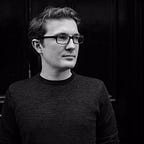Trend watchers don’t predict the future.
Here’s what we do instead.
I recently finished reading Philip Tetlock’s excellent Superforecasting.
The book summarises the results of the Good Judgement Project — a US government-funded initiative set up in the wake of the intelligence failures around 9/11 and Iraq’s WMD. The project posted hundreds of questions about the near future (current questions include “Will there be a new episode of mass killing in Democratic Republic of Congo before 1 January 2017?” and “What will be the end-of-day closing value for the dollar against the renminbi on 30 September 2016?”) in order to investigate whether we might be able to better predict geopolitical events.
The book’s central idea is that yes, certain people are able to demonstrate consistently above-average foresight when it comes to predicting the future, and Tetlock provides a detailed analysis of both the methods and character traits of superforecasters.
I was expecting to use the book to improve our work (and indeed there are many great insights to learn from), however it was the final chapter that I found most interesting and — quite unexpectedly — profoundly relevant.
Tetlock is dismissive of most ‘expert’ commentators’ forecasts, and he would almost certainly be frustrated at the nature of our statements about the future that aren’t specific enough, quantified and/or time-limited. However, in the final part of the book he tackles many powerful critiques of his method, objectives and approach. During this section, he acknowledges:
[A] critical dimension of good judgement is asking good questions. Indeed, a farsighted forecast flagging disaster or opportunity can’t happen until someone thinks to pose the question. What qualifies as a good question? It’s one that gets us thinking about something worth thinking about. So one way to identify a good question is what I call the smack-the-forehead test: when you read the question after time has passed, you smack your forehead and say “If only I had thought of that before!”
This resonated deeply with me, as it reminded me that we’re not in the business of trying to predict the future as participants in the Good Judgement Project are. We’re certainly not trying to state the probability of X happening by Y date. Our company is called TrendWatching, not TrendForecasting, and although most people think of these as interchangeable Tetlock’s insight shows that this isn’t the case.
We are not trying to be ‘correct’ (as Tetlock would define it). We’re not even claiming that the innovations we feature are destined to succeed (as we explain here). Obviously it’s convenient if the innovations we feature are wildly successful, or statements we make end up objectively taking place, but in the end it doesn’t matter. What matters more is that we help you — the reader — to be correct.
We’re sometimes challenged with the observation that our content is ‘just common sense’ or very focused on what’s happening today. But as Tetlock shows, useful answers about the future come from asking the right questions today. Our watching of today’s expectation-raising innovations encourages you to ask the right questions. And in the end, those questions will help you correctly answer the ultimate of business questions: “what will my customers want tomorrow?”
For more on why watching businesses and not customers is the counterintuitive secret to anticipating what people will want next, you can find a free preview of our new book Trend-Driven Innovation here.
TrendWatching’s content and tools give business professionals in 180+ countries the actionable foresight and inspiration to create successful trend-driven innovations.
Join the 250,000+ people who receive our free monthly Trend Briefings at trendwatching.com, learn more about our Premium Service, or get your hands on our end-to-end methodology in our new book, Trend-Driven Innovation.
